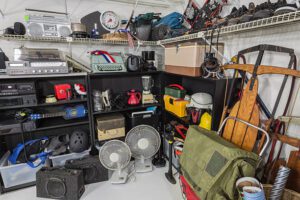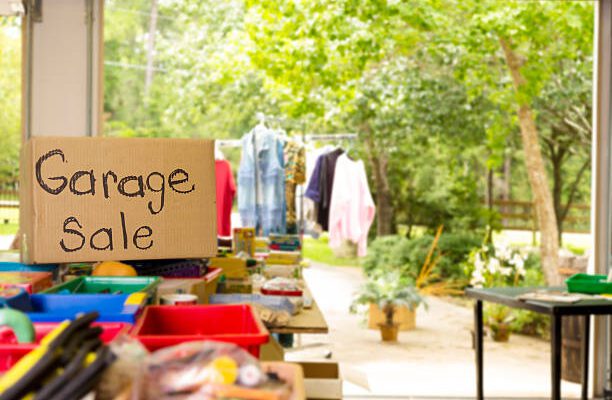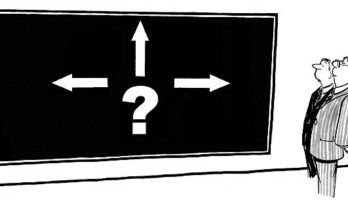When considering what kind of business to open, junkshop is not exactly at the top of the list. Granted, it requires one to literally get their hands dirty, but scrap and dirt can potentially be profitable. Not persuaded? How often do people get rid of old stuff at home? The truth is that people regularly dispose of a sizable amount of trash. Add to that the removal of huge objects like discarded cars and even structures slated for demolition. It’s a company with a healthy market and steady expansion. Making money out of trash, suddenly there’s a solid reason.
 (Photo from istock)
(Photo from istock)
These are some essentials for anyone considering opening a junkshop:
Start-up Necessities for junkshop:
Like other businesses, you must register your junk shop with the DTI (sole proprietorship) or SEC (for partnerships and corporations) for the registration of the business name. With the BIR for tax purposes, obtain barangay certifications, and obtain a license to operate from your city or municipal LGUs.
The Business Permits and Licensing Office requires junk shop businesses to sign an agreement promising not to cause neighbourhood complaints (smell, noise, clutter). Not to obstruct the natural flow of traffic in the area, to practice good sanitation. And that the owner must have obtained a location or site clearance order from the local planning office. Which in turn complies with the planning office’s land use plan or with the zoning ordinance.
Trading Practices:
You must understand where and how to get recyclables if you own a rubbish shop or trade scrap. You must first determine the materials you will be gathering. Some people decide to source solely metal, paper, or bottles. While others have a mixture of all three.
Find your local scavengers after deciding on the resources you want to gather. And either hire them to collect the items you need and pay them for their efforts, or simply tell them that you would like to purchase certain goods from them. That they have collected.
After obtaining all the supplies you require for your company, correctly sort them. Put them in good order so that you can trade with them. And store more supplies in your place of business. Even if you are dealing with waste, you still need to keep your workplace tidy and organized.
Locate several recycling centres to sell your materials:
 (Photo from istock)
(Photo from istock)
Some recycling facilities exclusively purchase metal, while others only accept paper. Once you’ve discovered them and made your choice, come to an agreement regarding the terms of payment, the timeframe for pickup or delivery of your materials to their recycling facility, and the quantity of materials you must provide.
Sourcing of Potential Clients
Customers are recycling companies to whom the owner of the junk shop will sell the sorted and divided junk goods. To acquire the best bargain possible, the owner of the junk business must research the market for a number of potential recycling agencies, such as a lock-in period on the purchase price of a certain item within one month. The cost of delivery or pickup has an impact on the price as well and should always be taken into account. The owner of the junkyard must haggle for the best price and work with the appropriate recycling representatives to determine the frequency of payments and volume of deliveries or pick-ups.
Retailers’ Walk-in Process
With or without pushcarts, retailers are the scavengers, along with locals from adjacent neighbourhoods and proprietors of small businesses. The company should follow a step-by-step process to prevent theft and have an accurate inventory:
- The helper will greet and assist the walk-in customer/retailer carrying the recyclable materials. The assistant will examine the things and, if necessary, arrange them. He will be the one to place the objects on the scale for weighing.
- The actual weighing will then be done by the OIC. He will complete a “weigh slip” on which the type of object and its associated weight are noted, along with his signature. The slip must be given to the Cashier by the OIC.
- The assistant will then move the weighted objects to the appropriate stock area.
- The Cashier must determine the full amount owed by the client.
- The sum must be personally delivered to the consumer, who must also sign the receipt as evidence of payment.
- Every day, the cashier must file all Weigh Slips.
 (Photo from istock)
(Photo from istock)
Accounting on daily basis
The Starting Purchasing Currency (SPC), which must be maintained and renewed at the start of each working day, shall begin with a predetermined amount on the first day of operation.
- The Cashier shall count the SPC, which shall be the pre-determined amount as indicated, at the beginning of each working day.
- Based on the filed Weigh Slips, the Cashier must compile a list of every purchase made throughout the course of each working day and record it in a log book.
- The Cashier must record all day’s expenses, except purchases, in a separate log book.
- The cash on hand should equal the SPC less all day’s purchases and costs.
- The Cashier will then total the day’s cash.
- Any money received from sales made by the Junk Shop to customers must be put immediately into the business’ bank account.
Marketing
Like any other business, finding stores and potential customers requires constant effort. Don’t just wait around for people to buy or sell scrap from your shop. You can go out and search for businesses that have trash and scrap items. You can advertise the scrap items at your junk shop on social media to increase sales.
Beginning a business is difficult. A junkshop operation has the potential to be a lucrative venture. Check it out to find out how you can turn your waste into money. In this way marketing also becomes an important part to run a junkshop.
References:
BusinessCoach, Inc.
Want to do something for environment and struggling to know ideas to lessen the water pollution, what are you waiting for click on the link below:
How to Lessen Water Pollution





3 Comments on “How to run your first junkshop”